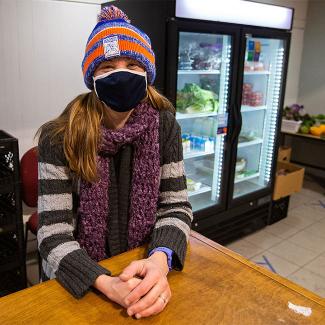What you'll learn studying Sociology at UW-Platteville
Study society and all of its parts, groups, cultures, norms, roles, and their institutional and organizational relationships through the University of Wisconsin-Platteville’s Department of Social Sciences Sociology program. Under the guidance our esteemed faculty, you’ll learn about life and culture in the United States and around the world; the inner workings of social organizations; the relationship between people and the environment; and race, gender, class, and sexuality.
Students majoring in criminal justice or psychology may often choose to minor in sociology. Both of these disciplines can lead to employment in the criminal justice system or the social welfare system.
A sociology minor requires a minimum of 24 credits of sociology classes, including no fewer than 12 credits at the 3000 level or above. Full requirements can be found in the University Academic Catalog.
Pursuing a sociology degree will teach you important skills in reading, writing, analysis, and logic. You’ll learn to do research and interpret social, economic, political, cultural, and technical change in a variety of contexts.
With a sociology minor, you’ll be able to address social problems and conflicts and how they impact your organization and community. You’ll be prepared to work in a broad set of in-demand careers including social work, business, politics, healthcare, and more.
Careers in Sociology
Sociologists study human behavior by designing and collecting data on research projects, analyzing qualitative and quantitative data, preparing reports or presentations to document their findings, and advising on social issues. Earning a bachelor of sociology or taking sociology courses in college will help you hone skills that are broadly transferable across a variety of careers. You’ll develop your problem-solving, critical thinking, and communication skills — all qualities prospective employers typically prefer when comparing candidates’ qualifications.
Some of the many potential careers you could pursue after studying sociology include:
- Addiction counselor
- Census researcher
- Child welfare specialist
- College admissions counselor
- Community health worker
- Criminologist
- Diversity, equity, and inclusion director
- Diversity manager
- Environmental specialist
- Hospital administrator
- Human resources specialist
- Learning and development specialist
- Market research manager
- Public relations specialist
- School counselor
- Social scientist
- Social worker
- Sociologist
- Teacher
- Urban planner
Sociologists often choose to specialize in one or more areas, such as gender, race, and ethnic relations; crime and poverty; education; healthcare; or population. If you choose to go into this field, you may work for a government agency, an educational institution, or nonprofit organization.

Discover by doing
At UW-Platteville, you’ll have numerous experiential learning opportunities outside of the classroom. Complete internships, tackle research projects, and attend university-sponsored events designed to enhance your educational experience.






